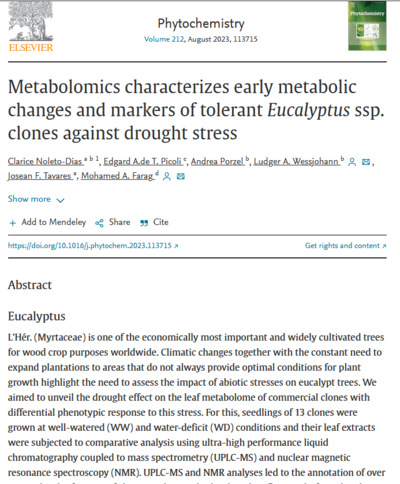Metabolomics reveals drought-tolerant eucalyptus.
Eucalyptus trees are an important source of wood, bioenergy and pulp for the paper industry. For this purpose, the trees, originally native to Australia and Southeast Asia, are cultivated on a large scale in many tropical regions worldwide. These plantations do not always offer optimal conditions for plant growth, making it useful to analyze and evaluate the prevailing stress factors such as drought and nutrient deficiencies in each case. Brazilian scientists, in collaboration with IPB, recently studied the effects of drought stress on these plants. Specifically, they looked at the composition of metabolites in eucalyptus leaves.
To do this, they grew seedlings of 13 commercially available clones under good and poor irrigation conditions and then took an inventory of all metabolites from the leaf extracts. As a result of these metabolomics studies, they found over 100 molecular markers that accumulated in the eucalyptus leaves under either water deficit or optimal irrigation conditions. Based on these metabolite profiles, the team could identify those clones within the studied plants that exhibited good drought tolerance. For example, the tolerant plants formed increased amounts of various substances such as arginine, caffeic acids and tannins under water deficit, while the sensitive clones showed a strong reduction in their glucose levels under drought stress. The results can be used in the future for early detection of drought-tolerant phenotypes and their cultivation in low-rainfall regions.


